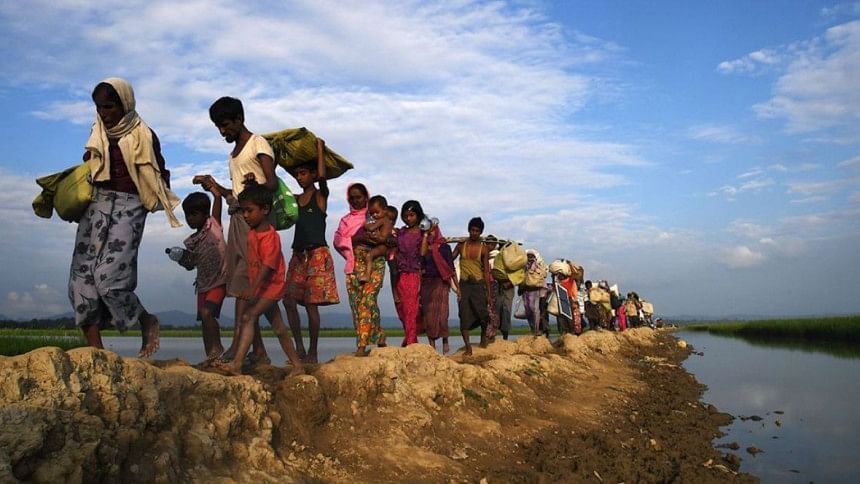Ethnic Cleansing: Myanmar forms probe commission

Refusing international investigations over the months, Myanmar has now established a commission of inquiry to probe allegations of ethnic cleansing against Rohingyas in Rakhine State as the country faces growing calls for accountability over the issue.
The four-person commission will be comprised of two local and two international members -- Filipino diplomat Rosario Manalo and Japan's former ambassador to the UN Kenzo Oshima -- the Myanmar President's Office said in a statement, Reuters reported yesterday.
Meanwhile, observers have criticised the decision of forming the new commission.
Manalo, 82, a former undersecretary of foreign affairs of the Philippines, will chair the commission.
The two local members are lawyer Mya Thein and Aung Tun Thet, an economist and former UN official. Thet was last year appointed by de facto leader Aung San Suu Kyi to a key role in Myanmar's response to the Rakhine crisis.
In an interview with The Daily Star in April this year, Thet had said tortures (on Rohingya) happened in Rakhine, but he was not concerned about the international community terming it “ethnic cleansing, genocide or war crime”.
“Whatever has happened in Rakhine is not systematic,” he had said.
Over 700,000 Rohingyas fled Myanmar's western Rakhine State after a military crackdown that started in August last year in response to attacks by The Arakan Rohingya Salvation Army or ARSA on security posts. Myanmar has rejected accusations of ethnic cleansing and dismissed most accounts of atrocities, blaming Rohingya “terrorists”, Reuters mentioned.
Independent journalists or human rights groups were not given access to Rakhine State since the military campaign began.
Yanghee Lee, UN special rapporteur on the situation of human rights in Myanmar, has not been allowed to visit Myanmar by the country's government since December last year to carry out her work mandated by the UN Human Rights Council.
Amid global calls for accountability, pre-trial chamber of International Criminal Court in June wrote to Myanmar to know its observations on “intentionally deported” Rohingyas into Bangladesh.
Myanmar State Counsellor Office Director General Zaw Htay said ICC does not have the right to take action against it as Myanmar is neither a member country nor has signed the agreement.
Against this backdrop, Myanmar has formed its own commission.
“The Independent Commission will investigate the allegations of human rights violations and related issues, following the terrorist attacks by ARSA,” said the office of President Win Myint, referring to the ARSA, a Rohingya armed group, reports Reuters.
Meanwhile, the UN has recently said the situation in Rakhine is not yet conducive to the return of the Rohingyas though Myanmar signed a repatriation deal with Bangladesh in November last year, and signed a tripartite agreement with UNDP and UN refugee agency.
Rohingyas want guarantee of citizenship in Rakhine, UN-led peacekeepers, return to their own homes and not the camps that Myanmar has set up, freedom of movement when they return and recognition as Rohingya, not illegal Bengalees.
Myanmar, however, says Rohingyas have to accept national verification card (NVC), which is a pathway to citizenship. But Rohingyas say there is little chance for them to get citizenship through NVC that identifies them as illegal foreigners in the first place.
The new commission to look into human rights abuses in Rakhine State has been criticised by observers yesterday as a "political gimmick", as Myanmar tries to stave off further censure over its treatment of Rohingyas, AFP adds.
Yangon-based analyst David Mathieson called the new commission a "political gimmick".
International Commission of Jurists legal adviser Sean Bain pointed out that previous inquiries on Rakhine had produced no tangible result.
Human Rights Watch Myanmar researcher Rich Weir said the new body would be used like previous commissions "as distractions and shields from criticism and pressure".

 For all latest news, follow The Daily Star's Google News channel.
For all latest news, follow The Daily Star's Google News channel. 




Comments